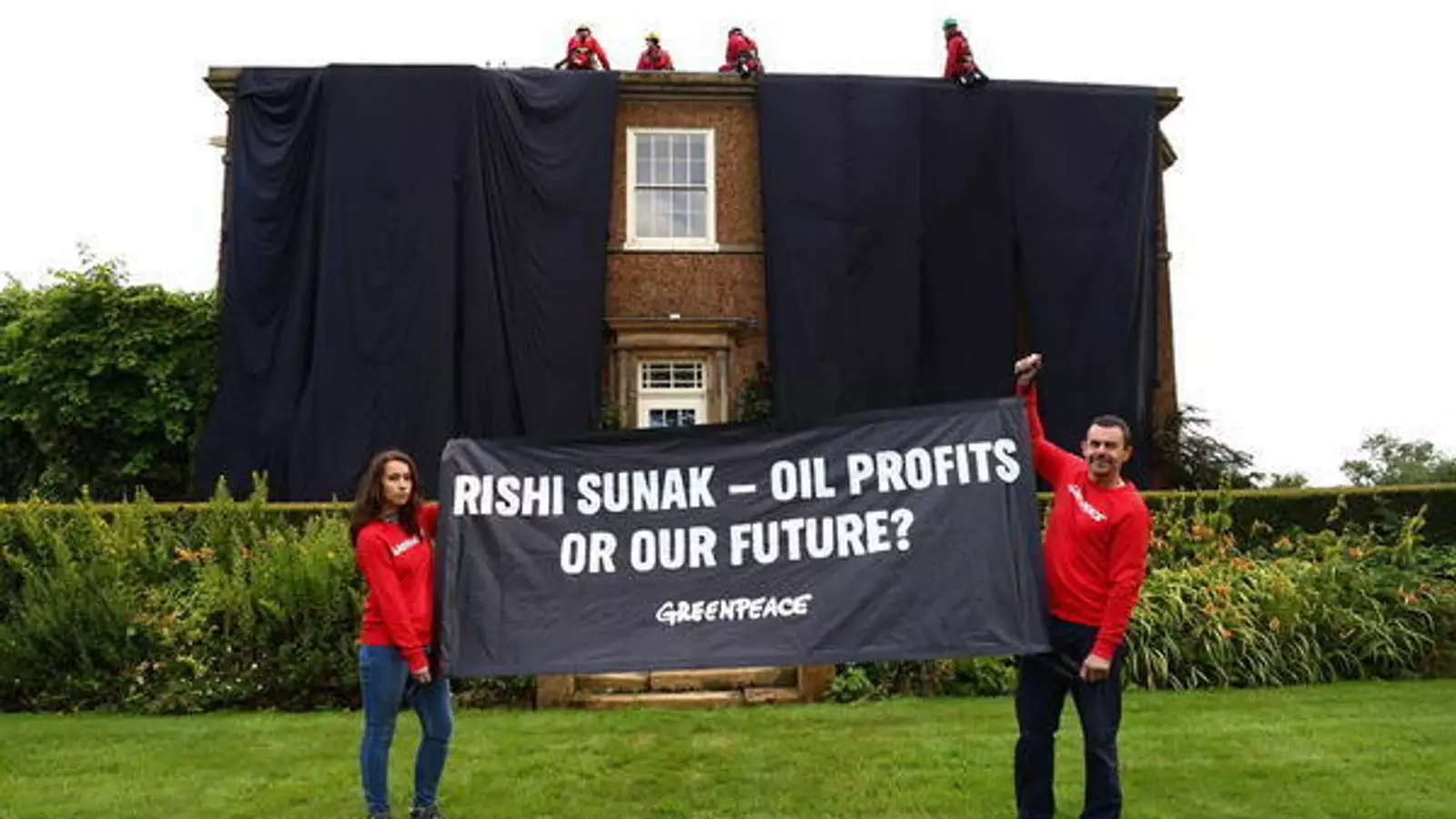Greenpeace activists have taken a bold stance against Chancellor Rishi Sunak’s support for North Sea oil and gas drilling by covering his North Yorkshire home in oil-black fabric. Climbing on to the roof of the property by using ladders and ropes, four activists unfolded a massive 200 square meters of fabric as a symbolic representation of the environmental consequences of drilling. In addition, a banner with the words “Rishi Sunak – Oil Profits or Our Future?” was unfurled across the mansion’s lawn. This dramatic display aimed to draw attention to Sunak’s backing of a major expansion in the North Sea, which involves granting 100 new drilling licenses off the coast of Scotland.
Since Rishi Sunak is currently on holiday in California, he was not present at his residence during the protest. However, a Number 10 source confirmed that police are at the property, and North Yorkshire Police issued a statement acknowledging their officers’ presence to manage the situation. The government defended its support for North Sea drilling, emphasizing that it prioritizes energy security and the utilization of domestic resources. Officials also highlighted the investment in renewables and job creation resulting from its approach.
Greenpeace’s Stand Against Drilling at Rosebank
Beyond Sunak’s endorsement of expanded drilling, Greenpeace’s protest also opposes his potential approval of drilling at Rosebank, the largest undeveloped oil field in the UK. The group argues that such a move contradicts warnings from the government’s climate advisers, the International Energy Agency, and the UN Secretary-General. These organizations have cautioned against new fossil fuel projects due to their potential to push global warming above the critical 1.5°C threshold. Critics fear that granting licenses for extraction in the North Sea will impede efforts to achieve net-zero emissions by 2050.
A Climate Leader or a Climate Arsonist?
Philip Evans, a Greenpeace UK climate campaigner, expressed disappointment in Sunak’s stance, dubbing him a “climate arsonist” instead of a climate leader. Evans criticized Sunak’s misinformation campaign, accusing the Chancellor of perpetuating the myth that new oil and gas exploration benefits ordinary people struggling with energy bills. In reality, the primary beneficiaries of increased drilling are oil giants, who will reap enormous profits, partly due to a loophole in Sunak’s own windfall tax regulation.
The protest at Rishi Sunak’s residence serves as a potent demonstration against the Chancellor’s support for expanding North Sea oil and gas drilling. Greenpeace accuses Sunak of disregarding expert advice on climate change and jeopardizing the global effort to combat the climate crisis. As the conversation around energy transitions and a sustainable future intensifies, it is vital to question the long-term environmental and social implications of such decisions.


Leave a Reply